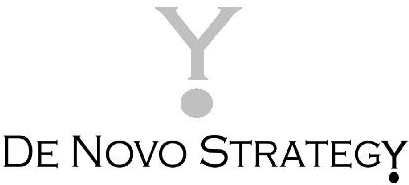The FDIC has announced its intention to extend the de novo period for certain new banking institutions. The previous de novo period was three years; the new one will be seven years. This change is significant because newly insured institutions are subject to more scrutiny and higher minimum capital ratios during that de novo period. Along with extending the de novo period, the FDIC will also subject de novos to more risk management examinations and require prior approval for any de novo business plan changes.
Heightened risk for seven years
Regulators say the supervisory updates are needed because de novos pose a heightened risk to the banking system. According to the FDIC, too many of the actual failures that occurred in 2008 and 2009 were banks that had been open for fewer than seven years. On top of that, a good number of those failures were banks that had been operating between four and seven years-banks that, under current policy, were not subject to the heightened de novo regulations.
According to data compiled by FinCriAdvisor (http://www.fincriadvisor.com/2009-09-07/FDICdenovopolicy), twenty-three, or 19.6 percent, of the 109 bank failures occurring between January 1, 2008 and August 21, 2009 were de novos. Of those twenty-three, six were within the three-year de novo period; the rest, 74 percent, failed between their fourth and seventh years of operation.
Exceptions
The extended de novo period will apply to existing newly insured institutions as well as banks for which charters have not yet been issued. Since the number of new charters awarded by the FDIC in recent months is relatively minimal, the changes affect existing banks far more than would-be banks. The only de novos that won't be subject to the extension and heightened scrutiny are those that are subsidiaries of eligible holding companies.
Eligible holding companies must have consolidated assets of $150 million or more. Bank holding companies are required to have BOPEC ratings of at least 2; thrift holding companies must have an A rating.
Details
Capital requirement.
A primary change implied by the extension of the de novo period is an increased capital requirement. De novos are currently required to maintain a Tier 1 leverage ratio of at least 8 percent during the de novo period. A longer de novo period means that young institutions will have to maintain this higher ratio for seven years instead of three.Examination frequency
. Along with extending the de novo period, the FDIC will also increase the frequency of risk management exams for de novo banks. Periodic risk management exams, which begin after the institution's first birthday, will occur once annually rather than once every eighteen months. De novos will have to budget for the extra costs associated with the additional examinations.The first year examination requirements for de novos will be as follows:
- Limited risk management exam during first six months of operation
- Full risk management exam during first twelve months of operation
- Compliance exams during first twelve months of operation
- CRA evaluation during first twelve months of operation
Thereafter, under the new policy, a risk management exam will be conducted every twelve months until the expiration of the de novo period. Compliance exams and CRA evaluations "will alternate on an annual basis."
Business plan changes
. The new policy also requires de novos to get FDIC approval prior to implementing any material changes to the institution's business plan during the seven-year de novo period. Previously, newly insured institutions had to provide the FDIC with a written notice of proposed business plan changes within the three-year de novo period.The FDIC argues that experience shows the necessity of this requirement; when newly insured institutions deviate from their original business plans, those deviations can often lead them into areas of business where they do not have adequate risk management expertise or resources. "Significant deviations from approved business plans" was one of several common elements the FDIC identified among troubled institutions that have not yet completed their seventh year of operation.
Change requests will be reviewed to ensure that:
- There is a defensible business reason for the change.
- The de novo has the resources-financial and human-to manage any risks created by the change.
While this requirement keeps de novos from jumping into risky lines of business without adequate forethought, it also limits the de novo's ability to adapt quickly to changing circumstances. Should the bank implement changes or deviate from the original business plan without FDIC approval, fines or other penalties could result.
Financial statement updates
. In the third year of operation, de novos must now provide the FDIC with current financial statements along with strategic plans and projected financial statements covering years four through seven. This applies to existing institutions that are less than three years old, as well as newly chartered institutions. The FDIC will want to know specifically about the de novo's expansion plans, product/service strategies and the outlook for capital expenditures and dividend payments.To read the full Financial Institution Letter explaining and defending the altered supervisory procedures, click here: http://www.fdic.gov/news/news/financial/2009/fil09050.html


